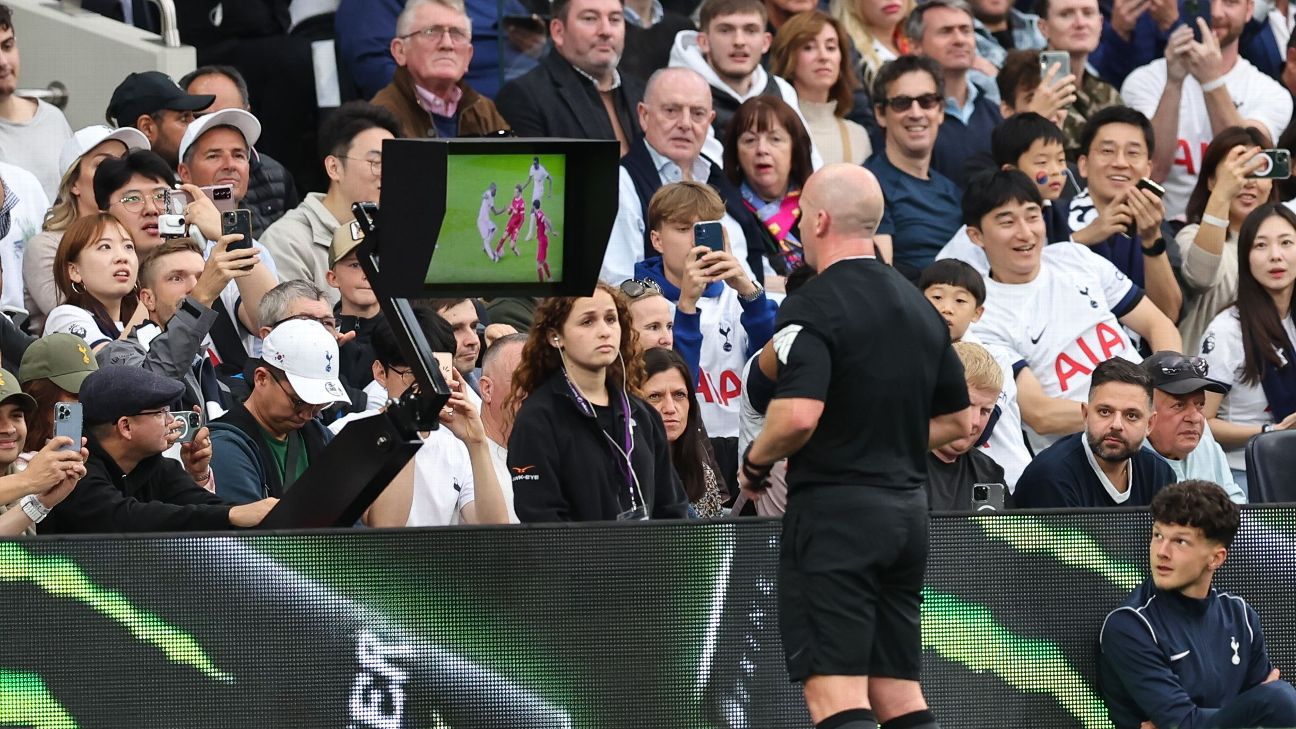

Howard Webb invited airline pilots to talk to his team of Premier League referees last month as part of a drive to improve communication in the VAR hub and with the referee on the pitch.
Webb, who is the chief refereeing officer for the Professional Game Match Officials Limited (PGMOL), is looking at all measures that could help officials avoid the kind of catastrophic error that led to Luis Díaz’s goal being wrongly disallowed for offside for Liverpool at Tottenham Hotspur.
– Stream on ESPN+: LaLiga, Bundesliga, more (U.S.)
Pilots work in a high-pressure environment where they must make split-second decisions and communicate with other members of the team in the cockpit and in traffic control.
PGMOL is not the first body to look at the way pilots work for improvements. In 2013, the National Health Service turned to the airline industry to bring greater standardisation of procedures and more use of checklists to avoid errors. Indeed, staff from air traffic control made a presentation to officials 18 months ago.
Two British Airways pilots, Chris Heaven and Pete Nataraj, gave a 45-minute presentation to the Select Group 1 officials — the 20 referees and 30 assistant referees who take charge of most Premier League matches — which also covered staying calm in challenging situations.
It’s one of a number of initiatives brought in by Webb to try to end the high-profile errors that have dogged VAR in the Premier League. The select group officials have also been taking part in fortnightly workshops at Stockley Park, working on a number of sticking points, such as when is the correct time for the VAR to intervene and advise the referee he has made a mistake.
Protocol was tightened up after the Díaz error, and Webb has stepped up his long-term goal of hiring VAR specialists by advertising the role.
Wolverhampton Wanderers boss Gary O’Neil was incensed last month when the VAR failed to overturn a penalty awarded against his team to Newcastle United. Despite that being identified as a clear case when a VAR intervention was needed, Wolves conceded a nearly identical penalty a week later when Sheffield United scored a stoppage time equaliser and the VAR again didn’t get involved.
Although only two interventions have been judged to be wrong this season, there have been 13 times the VAR has failed to correct a mistake. Brighton & Hove Albion and Wolves are worst affected, with three failures to intervene each.
The last weekend before the international break was the most successful since the Independent Key Match Incident Panel was introduced by the Premier League to assess all major refereeing decisions within a match. The five-man panel, which features three former players or coaches plus one representative each from PGMOL and the Premier League, voted 5-0 that all 29 key decisions were correct by the VAR.
However, Webb still faces a sizeable battle to win back public trust after the Díaz incident, and one good weekend isn’t going to change that.